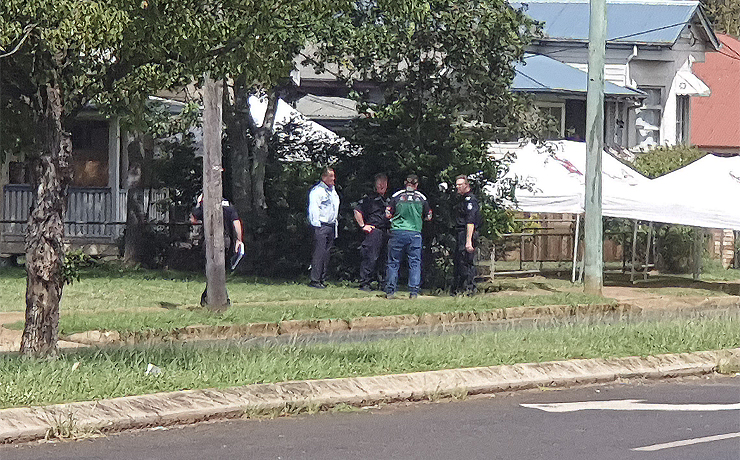
June 25, 2019
A bid to freeze the South Burnett’s rural rates at last year’s level failed to win majority support at Monday’s Council Budget meeting.
During the meeting, Councillors were asked to adopt the Differential General Rates schedule for 2019-20, which sets the minimum general rate and rate in the dollar for each of the Council’s 45 rating categories.
Crs Gavin Jones and Danita Potter agreed to move and second the motion, but before it could be voted on Cr Ros Heit said she wanted to move an amendment which would see the rate-in-the-dollar for rural properties held at last year’s level.
Mayor Campbell agreed to allow the amendment to be put and asked Cr Heit to speak to it.
“I would like to propose a motion to amend one of the rates in the dollar,” Cr Heit said.
“I’d like to move a motion that the rates for the rural sector not have the 1.9 per cent increase for this year, and that the rate in the dollar for the rural sector be adjusted to 1.2274 cents in the dollar.”
Cr Heit said that when Council rolled the Road Levy into the general rates last year, more than 50 per cent of that transition was funded by the rural sector.
“One hundred and forty-six rural property rate notices went up by more than $1000, with the majority of increases between $3000 and $4000 a year,” Cr Heit said.
“Our rural sector is the backbone of our region and it’s important to support agriculture.”
She said she realised that her amendment would come at a cost.
“It has been costed at $136,000 out of South Burnett Regional Council’s bottom line,” she said.
“As an agricultural region I think this is a small price to pay to assure our primary producers that we support them, and give them a breathing space after the heavy increases they had last year.”
Deputy Mayor Kathy Duff, who seconded Cr Heit’s proposed amendment, agreed.
“Mr Mayor, I support Cr Heit, and I have a number of reasons why,” Cr Duff said.
“I think our whole region has been drought-declared for a very, very long time. Our rural ratepayers are doing it tough, and if they’re doing it tough our town businesses are doing it tough, too, because we’re an agricultural region.
“Recently Cr Potter and I attended a mental health workshop and Cr Potter will back me up on this: the figures for rural mental health are alarming. Not only do rural men and women not live as long, but their suicide rate is alarming and increasing.
“I went to a weaner sale on Friday and the prices were down. When I asked people why they thought the prices had gone back, they said they are running out of feed, out of water and out of money.
“As Cr Heit said, in a $66 million budget I don’t think $136,000 is a lot. But it will say to people that we are listening, that we are concerned and that we understand.”
Cr Duff said she believed the region’s townsfolk and businesses would also be sympathetic to the proposal because they knew that when rural people were doing it tough they were doing it tough, too.
“But also, our townspeople are the first to put their hand in their pocket when rural people are suffering,” Cr Duff said.
“So I don’t think we’re going to get any backlash by keeping the rural rates down, particularly with these higher valuations.
“This is why I’m supporting Cr Heit in that resolution, and I hope my fellow Councillors will do the same.”
Mayor Campbell thanked both Councillors for their comments and said he wanted to add a few of his own.
“When the Road Levy was originally introduced it impacted town residents much more than rural landholders because it was set at $200 per rates notice, rather than being tied to land valuations,” the Mayor said.
“This meant many average residential property owners faced an increase of 30 to 50 per cent at that time, while the impact on rural landholders was significantly less.”
In the years since, Mayor Campbell said the Road Levy’s impact on townsfolk had largely been absorbed, so now rural landholders were going through the same thing.
“The issue is that as a Council, we represent the interests of the whole region and not just a section of the community,” the Mayor said.
“There wouldn’t be a Councillor sitting in the chamber this morning who doesn’t appreciate that particular fact, and this Council has talked about the introduction of new (rating) categories that may reduce the impact on some ratepayers.
“But the caution that I’d put out there is that if you’re going to introduce new categories so that some ratepayers may pay less, you are immediately creating a situation or circumstance where other ratepayers are going to have to pay more.
“This discussion has been flagged in Council, but it has not been debated because we do not have facts that we can put on the table at this point in time.”
The Mayor said he knew there were other Councils that had many more rating categories than the South Burnett, but whether or not those categories fitted local circumstances remained to be seen.
“I know that there have been rural producers from one of the western areas in Division 6 who have made a presentation to us in Council and we do hear what’s being said,” Mayor Campbell said.
“But at the same time, we acknowledge that as a Council we function for the whole region and not just sections of it.”
Cr Campbell said he had more faith in the introduction of a Hardship Policy.
This would allow ratepayers facing financial difficulties to preserve their discount and avoid interest, in a similar manner to the extended rates payment period Council had acceded to after approaches by rural landowners last year.
The Mayor said he also understood a number of properties facing big increases had challenged their most recent valuations, but the results of those challenges were still unknown.
Cr Terry Fleischfresser agreed with the Mayor.
He said Councillors knew that any move to discriminate in favour of any particular group disadvantaged all other groups.
This could result in a ‘”reverse Robin Hood” scenario, where the poor were robbed to advantage the rich.
Cr Heit’s amendment was put to a vote and was lost by five votes to two.























